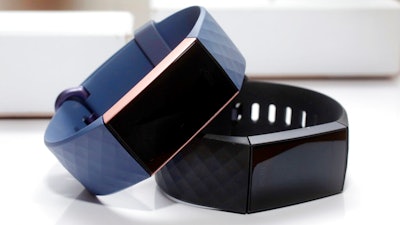
LONDON (AP) — The European Union on Thursday approved Google’s plan to buy fitness gadget maker Fitbit for $2.1 billion after it promised to restrict user data and ensure Android phones work with other wearable devices for at least 10 years.
Human rights and consumer groups had called on authorities to block the deal, citing privacy and antitrust concerns. The deal also attracted scrutiny in Australia, where competition regulators are mulling a similar offer from Google.
The EU was initially worried the deal would expand Google’s “data advantage” and raise barriers for rivals in the online ad industry.
The EU’s competition commissioner, Margrethe Vestager, said she approved the deal because Google’s commitments “will ensure that the market for wearables and the nascent digital health space will remain open and competitive.”
Google said it “worked constructively” with EU regulators to resolve their concerns, including the set of legally binding commitments that the European Commission accepted.
“These build on assurances we have made since the beginning that we are committed to protecting Fitbit users’ privacy and will continue to invest in and support manufacturers and developers,” the company said in a statement.
Google made the commitments to get approval from the EU after the bloc’s competition watchdog launched an investigation of the deal this year.
The Silicon Valley tech giant's commitments included a promise to silo off Fitbit user data from other Google data and not use it for advertising purposes. The company also pledged to ensure phones running its Android operating system can continue to work with third-party fitness trackers. That includes agreeing not to use warnings and error messages to worsen the experiences of other fitness watches.
Google also vowed to continue giving outside health and fitness apps to access Fitbit data.






















